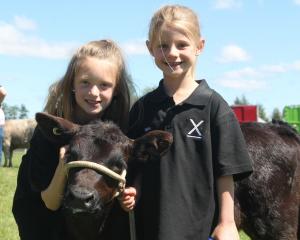
Mrs McGuckin established Christchurch-based Exquisite Wool Traders in 2008 after her family’s wool-buying business Yaldhurst Wools had long supplied the Hainsworth Mill in England with wool, including fibre sourced from throughout the South Island.
The business — which celebrated the opening of a small retail store earlier this month — stocks woollen blankets, throws, scarves, knitwear and woollen caskets and ash urns.
Ms Lim has become an advocate for farming and Mrs McGuckin said she thought she would be a great person to get on board to talk about wool.
When she first messaged her, Ms Lim and her husband Carlos Bagrie were coincidentally in their Royalburn Station woolshed near Arrowtown, pondering why their fibre was worth so little and the former MasterChef winner said she would love to have a chat.
The pair collaborated to design throws and bedding blankets, made from Royalburn lamb’s wool, which represented the Central Otago landscape.
Their discussions on wool included how to use greater volumes of the fibre and Ms Lim mentioned garden pots.
More than 350million plants in plastic pots were produced in New Zealand each year, Mrs McGuckin said.
They subsequently developed The Wool Pot, with the two-fold purpose of helping reduce single-use plastic in the gardening industry and another use for New Zealand’s beleaguered strong wool clip.
But for it to work, it had to be affordable given that it was going into the ground and was not a keepsake wool product. Manufacturing in New Zealand would mean it would only be a cottage industry and never at volume, Mrs McGuckin said.
So manufacturing was being done offshore and there had been a lot of interest in the product including contact from some of the key players in the horticulture industry. The first order had been a prototype with many given away for people to try.

It was passion for the wool industry which kept her going and she wanted to see the next generation being able to be involved in a thriving, viable industry.
She was concerned about the number of farms being converted to forestry, saying that land would never revert to sheep farming and it was short-sightedness.
Her new shop, officially opened by Selwyn MP Nicola Grigg, was "totally sustainable" and included wool insulation. While it was difficult opening a physical store in today’s climate, people needed to be able to "look and touch and feel" the wool products. It was also a good way to discuss the industry with visitors.
Like any business, she had to keep it fresh and think of innovative ways to use the fibre. The casket business had really grown since launching more than a decade ago.
The Ministry for Primary Industries’ recently-released Situation and Outlook for Primary Industries said wool exports were forecast to decrease because of subdued demand and slower manufacturing activity in key markets.
Uncertainty regarding value and volume forecasts continued to be elevated in 2023-24 with price volatility forecast to subside but remained higher than usual over the coming year as global trade attempted to readjust from a turbulent couple of years of disrupted production and trade.
ANZ’s latest Agri-Focus report said coarse wool prices were improving albeit off a low base. Prices had lifted about 25c/kg over the past month and were about 20c/kg ahead of pricing at this time. While prices were trending up, they were not yet meaningfully lifting farm incomes and shearing costs were still outstripping returns.

















